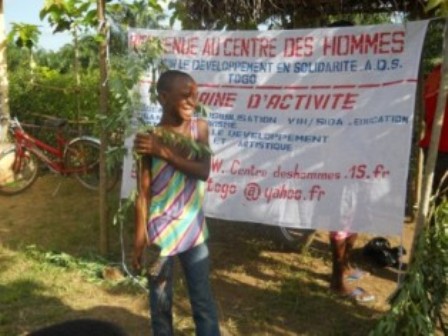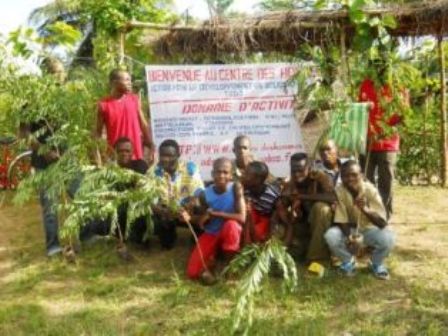This project is within the framework of reforestation, agriculture and permaculture. It is centred on the cultivation of vegetables and tropical plant varieties at schools in the villages surrounding Kpalimé. It requires volunteers willing and keen to learn about tropical agricultural products to help the poor population. A garden has to be set up on a piece of land of up to one hectare for a village, or for a school in a village. This project allows the involvement of children, young people and adults, generating an interest among them in agriculture, and particularly permaculture:
* The permanent use of the soil using organic fertilisation techniques and without using chemicals.
* How to lay out seed rows using precise measurementsas part of good garden practice.
* Procedures for creating, maintaining, harvesting a garden, and reworking the same soil for a new garden. This garden practice can then be transferred to farming.
* Students and young people in the villages have the opportunity to create their own business by growing vegetables and other plants based on permaculture.
This project is for anyone who is interested in agricultural production and environmental protection through permaculture. It is also suitable for people to learn how to make a sustainable garden.
Seven villages have already donated the land for their garden.














